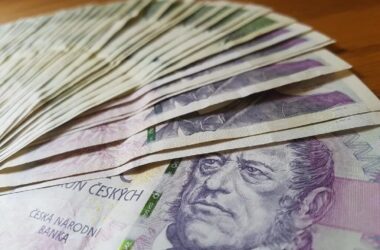French champagne makers are grappling with declining sales as global economic and political anxieties, shifting consumer habits, and competition from cheaper alternatives put a damper on the luxury beverage market.
The Comité Champagne, the joint trade association, reported a nearly 10% drop in champagne shipments last year, with sales hitting their lowest levels in more than two decades.
“Champagne is a real barometer of the state of mind of consumers,” said Maxime Toubart, president of the Syndicat Général des Vignerons and co-president of the Comité Champagne. “It is not time to celebrate given inflation, conflicts across the world, economic uncertainties, and political wait-and-see in some of the largest champagne markets, such as France and the United States.”
In key markets like the U.S. and France, consumers have increasingly opted for more affordable alternatives, including prosecco, English sparkling wine, and crémant. Additionally, generational trends show younger consumers, such as Gen Z and millennials, reducing alcohol consumption in favor of alternatives like mocktails and cannabis, while baby boomers are spending less on wine as they retire.
The Comité Champagne reported a steep drop in sales, with 299 million bottles shipped in 2023, down from 326 million bottles in the post-pandemic boom year of 2022. The decline continued into 2024, with a further 9.2% drop, bringing shipments to 271.4 million bottles.
The French market suffered a 7.2% decline last year, totaling 118.2 million bottles, which producers attributed to economic “gloom” and political instability. France experienced a turbulent year politically, with François Bayrou sworn in as the fourth prime minister in a year amid a divided parliament and growing national unrest.
Exports also saw a sharp decrease, with 153.2 million bottles shipped internationally—a nearly 11% decline compared to the previous year.
The challenges for champagne producers extend beyond sales. Climate-related issues, such as frosts and wet weather during the 2024 harvest, have taken a toll on the Champagne region’s vineyards, accelerating mildew attacks and threatening crop yields.
Despite the setbacks, industry leaders remain focused on long-term resilience. “It is in less favorable periods that we must prepare for the future, maintain our environmental trajectory, and conquer new markets and consumers,” said David Chatillon, co-president of the Comité Champagne.




